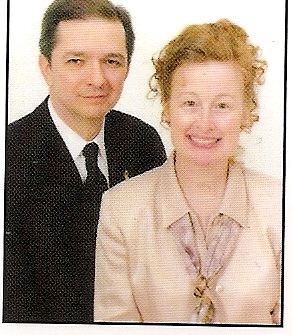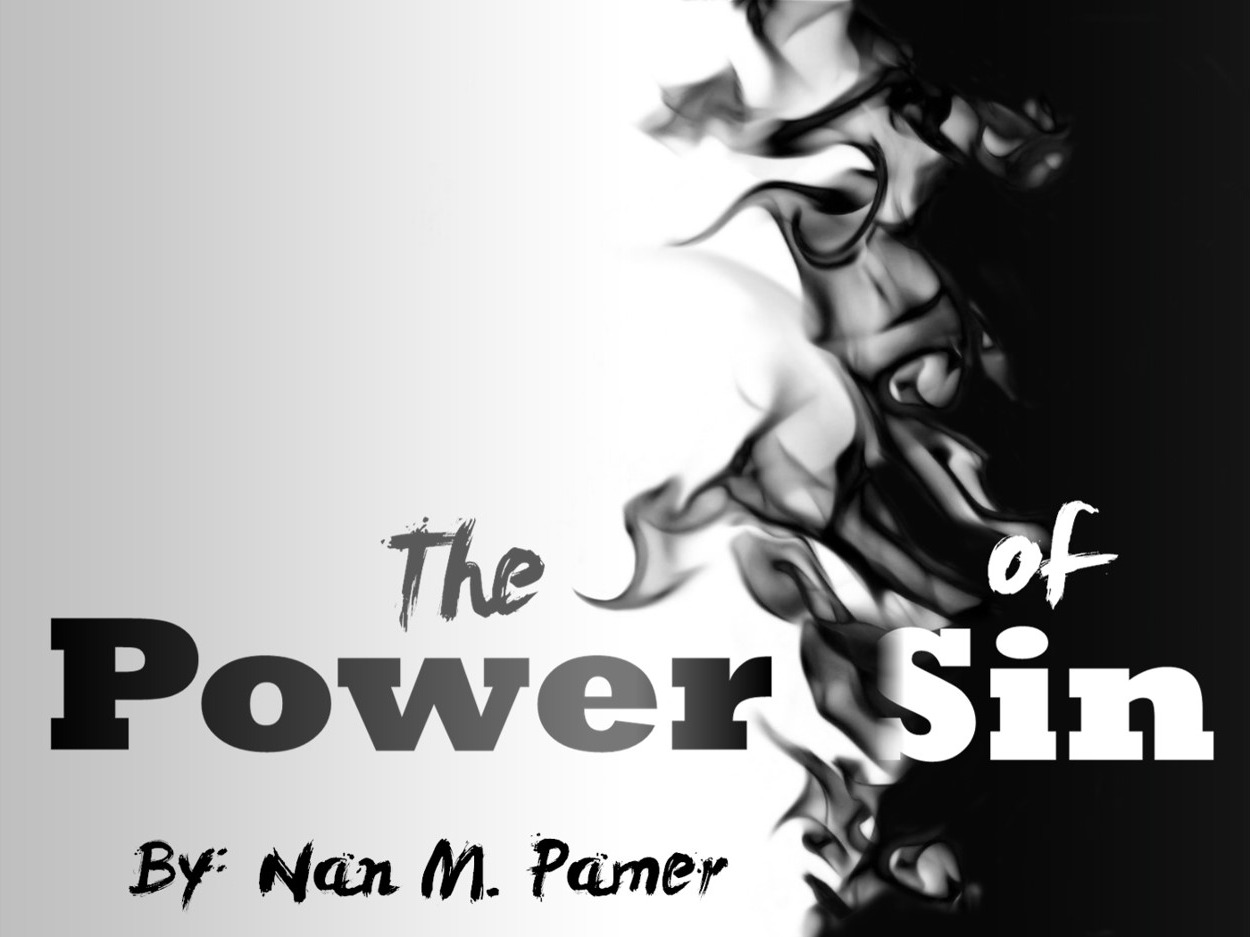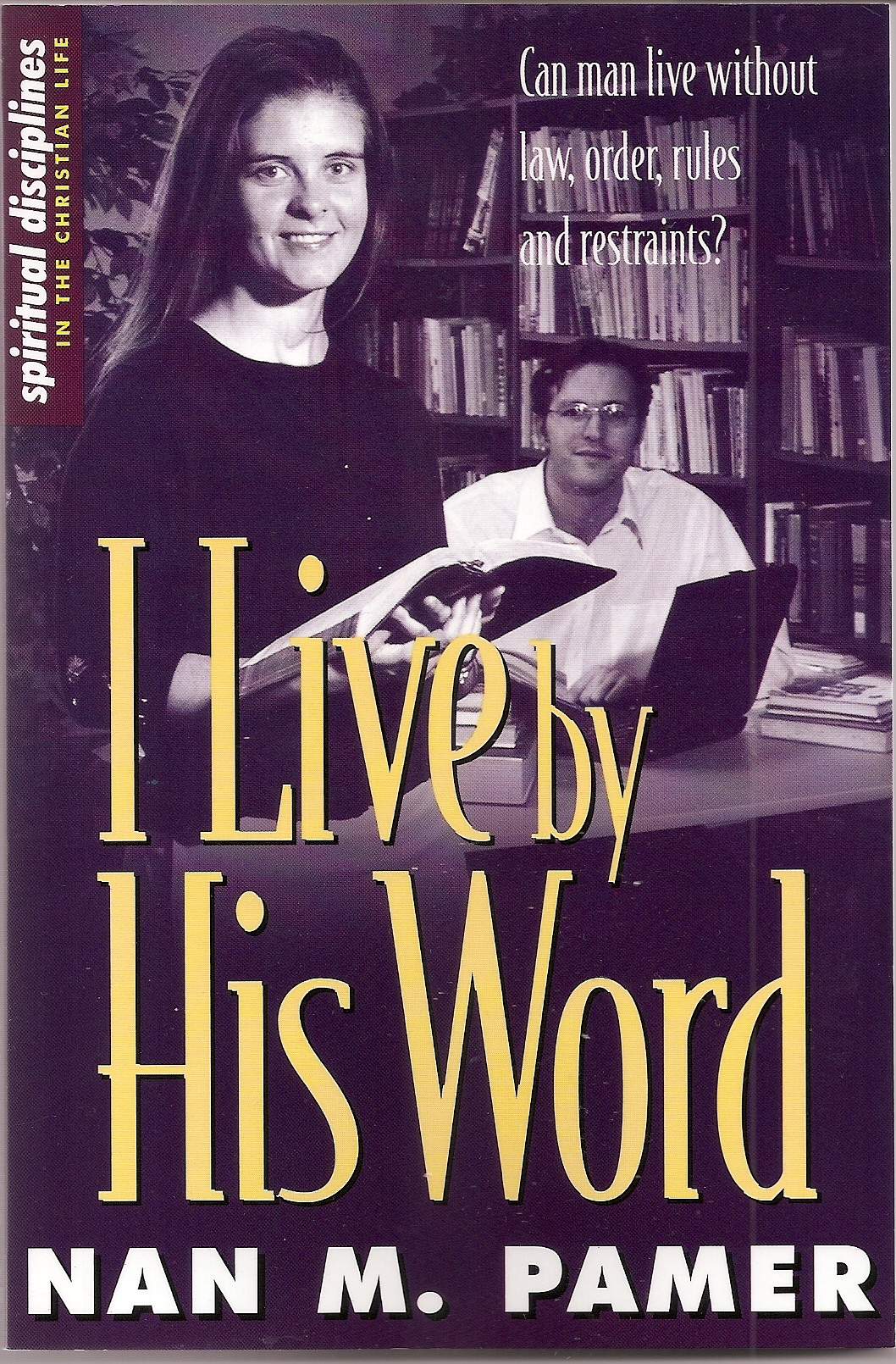
By Nan M. Pamer
Hold fast to the Bible as the sheet-anchor of your liberties; write its precepts in your hearts and practice them in your lives. To the influence of this book we are indebted for all the progress made in true civilization, and to this we must look as our guide into the future. Righteousness exalteth a nation; but sin is a reproach to any people.
-Ulysses S. Grant
There is one more aspect in this discussion that must not be overlooked. The rules and restraints that the Bible sets forth have another magnificent purpose: to hold back the power of sin.
Sin. Where it dwells, it hungers for mastery. Once it gets a foothold, it will work night and day to bring a person under its dominion. Man must keep a constant vigil against sin. Human flesh loves the momentary thrill of sin, and in order to keep it free from sin, there must be barriers and fences and parameters put in place that keep man from getting too close to it. Sin blinds. Sin weakens resolve. Sin is a master at putting out temptations and seemingly innocent bait to pull unsuspecting humanity into its clutches.
The Bible gives the perfect analogy to describe sin: leprosy. It enters slowly and unseen, but in the end, it destroys everything that is good. The end is death. Leprosy is a disease that eats away every good and wholesome thing in the body. First it destroys the outer appendages: fingers, toes, nose, and ears. Then it works to destroy the entire body. One doesn’t see or detect it in the beginning, but slowly it distorts and destroys. Sin begins small, but the end is total destruction. Sin starts with just a little lie, a little theft, a little flirtation, but the end is destruction of all truth, all ownership, all relationship.
Because of the deceitfulness of sin (Hebrew 3:13), there must be rules of behavior in place in the lives of men and women to keep back the power of sin. No man ever dreams that the seemingly innocent flirtation with his secretary will lead to a broken-hearted wife, devastated children, unwanted pregnancies, and guilt that he carries for the rest of his life. When the innocent flirtation begins, it appears so innocent, and no one can see the end result. Thus, it is imperative that there be rules of behavior firmly in place. Yes, the respect for his wife and family and his allegiance to God are essential, but rules such as a man should never touch a woman (1 Corinthians 7:1) and rules of modest clothing (I Timothy 2:9) are necessary in helping to keep sin in its cage. The precepts and admonitions of the Word of God acts as barriers and walls to keep us from getting too close to sin’s power.
It is like the foolish people who find a tiger cub and bring it into their home. They think because they pet it, take care of it, and keep it confined that it will never dominate or try to destroy them or their children. But little by little, the fangs and the claws appear, and that destructive nature begins to manifest itself, and death is on its way. Thus is the way of sin.
The nature of sin is to dominate and to destroy. It tears down and eats away all that is good and leaves nothing in its path but destruction. Sin has one goal: the total annihilation of all that is good by getting its destructive tentacles deep in the thought processes and flesh of humanity.
Oh, the blessed death, burial, and resurrection of Christ! Within this event there came the power to live above sin. The blood that Christ shed and the resurrection power that came up out of the grave gave mankind the needed antidote to destroy sin’s power in their lives. No wonder the blood is called precious! No wonder we celebrate Easter with singing and rejoicing. Jesus Christ came to bring power over sin! Paul said it so beautifully in Romans 6:14: “Sin shall not have dominion over you.”
But the very nature of sin itself – its relentless desire to dominate – must be watched and guarded against constantly. Paul, Peter, James, Jude, John, Luke, Matthew and Mark, the great writers of the New Testament knew the wonderful blessings that Christ’s work on the cross did for mankind, but that did not stop them from writing pages and pages of rules, statutes, and admonitions to the church, they knew that human flesh must constantly be on guard and must work tirelessly to maintain the wall between human flesh and sin. Yes, the power of sin had been broken by Christ’s work, but the human flesh still craved and longed for sin. The New Testament writers knew human nature much better than modern religious thinkers. Peter wrote, “Dearly beloved, I beseech you as strangers and pilgrims, abstain from fleshly lusts, which war against the soul” (I Peter 2:11).
While modern thought has determined that we can play with evil, and while the modern media loves to make a mockery of sin and to put it in sheep’s clothing, the inspired writers of the Bible knew that we had to keep as far from it as possible. While man today wants to play with sin, those great men of God wanted believers to keep even the root of sin from getting started.
The Bible is the perfect guideline to keep sin at bay. There are seemingly insignificant admonitions, yes, rules, contained in the Word of God that, if heeded, protect and guard men and women against the power of sin. The power of sin is such that we cannot afford to move one millimeter toward it. We need clear-cut parameters to keep us from sin, and those are contained within God’s holy Word.
One of the things that I have observed in my forty-eight years of working with people is this: There is a small percentage of humanity that thinks abstractly and sees the big picture, appearing to be capable of coming to the border of sin, realizing its deadliness, and then reorienting themselves to stay away from that sin. However, most people do not possess that quality. It has been my experience that the majority of people need clear-cut rules and distinct parameters to keep them from wickedness.
The Internet is the perfect example. Never has there been a medium with so much potential for good and so much potential for evil. People must be given clear-cut, distinct parameters and guidelines about it. As much as the church may bristle at taking time to deal with these issues, there will have to be distinct guidelines. Sunday school classes, Bible studies, and small group sessions will have to deal with it. Saints cannot access pornographic web sites and build relationships with strangers on the Internet. Period! Pastors and church leaders must not shirk their duty in this area, just because of the loud clamor of lawless people.
“I will set no wicked thing before mine eyes” (Psalm 101:3). “Abstain from all appearance of evil” (I Thessalonians 5:22). “In all thy ways acknowledge him, and he shall direct thy paths” (Proverbs 3:6). These are the principles set forth by the Word of God that must govern our use of the Internet.
Clearly, it would be wonderful if all Christian people would monitor themselves. But experience has taught us that most people will need regular doses of admonition concerning the need not to visit certain Internet sites and to refrain from many chat rooms and to keep themselves from all the other evils that are contained within the Web.
Disobedience Unleashes the Power of Sin
Adam and Eve had one law by which they had to abide: They could not eat the fruit of one tree. The disobeyed that one law and, as a result, unleashed the most destructive power ever known: sin. Their disobedience set sin in motion. This is why the Bible stresses obedience form cover to cover. Obedience to the Word of God restricts sin. (see Exodus 19:5; Deuteronomy 26:16; James 1:25; Revelation 22:14.)
Jesus Christ taught this concept with His very life. One of His primary attributes was obedience: “Though he were a Son, yet learned he obedience by the things which he suffered” (Hebrews 5:8), “by the obedience of [Christ]” Romans 5:19, “[Christ was] obedient unto death” (Philippians 2:8).
Jesus declared this to all his disciples: “If a man love me, he will keep my words” (John 14:23).Christ knew the power of sin and that the best way to keep it under control was obedience to the Word of God. Disobedience unleashed sin in our mortal bodies; obedience inhibits it. When a person disobeys God’s law, he unleashes the power of sin in his life, and the more disobedient he is, the stronger sin reigns in his life.
Sin is present in human flesh. Paul wrote: “bringing me into captivity to the law of sin which is in my members” (Romans 7:23). And “let not sin therefore reign in your mortal body, that ye should obey it in the lusts thereof” (Romans 6:12).
If that sin is unleashed it will destroy. Adam and Eve experienced this; sin brought death to them. It was true in the Old Testament and in the New Testament, and it is still true today. Disobedience is the most deadly thing a human being can do.
To the Church
Saints must understand that we are living in an unprecedented hour. Sin is engulfing every institution of man, and it is permeating the thinking of humanity. Every fence, every rule, and every stature that separates the church form the sins of the world are priceless treasures. We are dealing with the most destructive power ever known to man. Sin is ruthless. It has no sympathies. It cares not what it consumes.
The early pioneers of the Pentecostal movement came out of the world of sin almost a hundred years ago. They gladly embraced the teachings of the Bible that separated them from the world. They had seen the destruction of sin. They knew of the drunken, immoral life that comes from no rules and no restraints. They set up biblical parameters for their families and churches that would help to keep sin from engulfing them.
Of course, they understood grace! It had saved them from “sin’s dread sway”. But they knew how their flesh needed fences and guidelines that would guard them in times of weakness. Their understanding of grace drove them to protect that treasure that was in their earthen vessels.
Now we are three and four generations removed from those precious saints. Their descendants have lived in the marvelous freedom that comes from living by the Word of God. But a sad evolution has taken place in some of their lives. They have been free so long, they have forgotten the tyranny of sin. They have lost sight of how important it is to keep a distance from its tentacles. Suddenly, these “enlightened” ones think they understand grace far better than their forefathers did. They so naively think, like their peers in the secular world, that true freedom has no restraint, that it can operate on principles instead of clear and concise rules of behavior.
It is so grievous to see this take place. Once the walls of rules come down, sin is just waiting to flood into a life. History is filled with such examples. It is often the posterity of the great “people of the creed” who begin rewriting the rules, bringing enlightenment to the unenlightened and all the while dismantling the very thing that has brought the wonderful freedom to them that they have been privileged to enjoy.
The above article, “The Power of Sin” is written by Nan M. Pamer. The article was excerpted from Pamer’s book I Live By His Word.
The material is most likely copyrighted and should not be reprinted under any other name or author. However, this material may be freely used for personal study or research purposes.




1 thought on “The Power of Sin (Entire Article)”
Comments are closed.